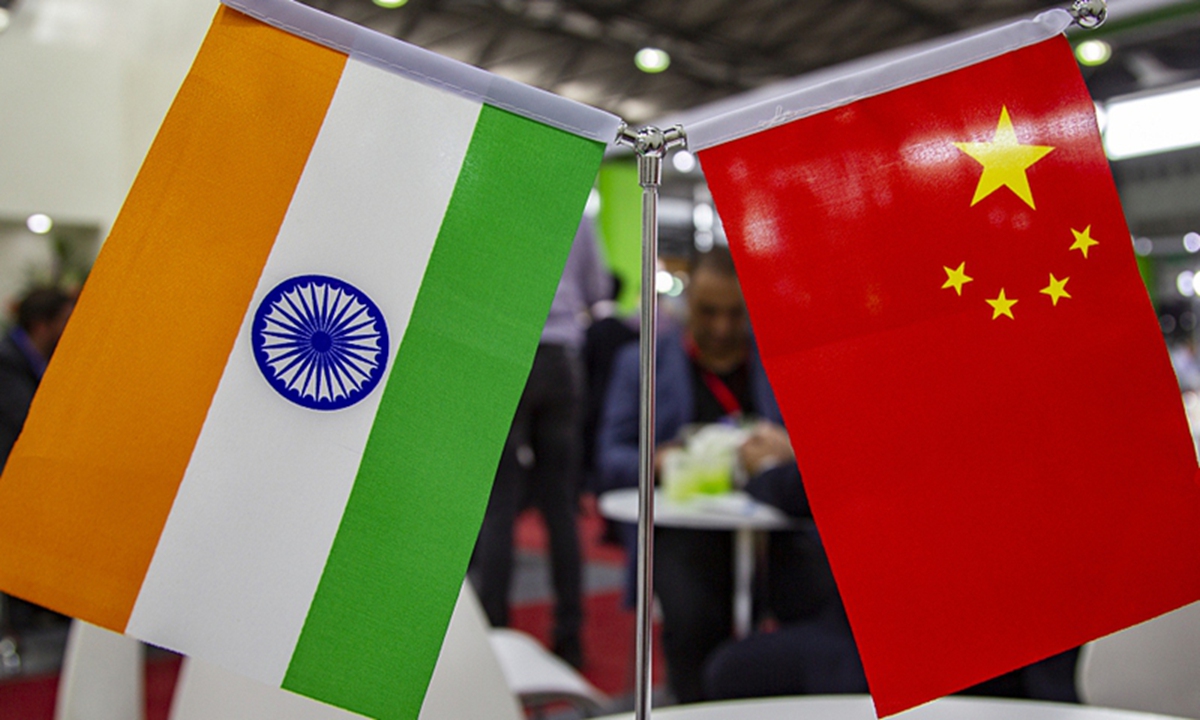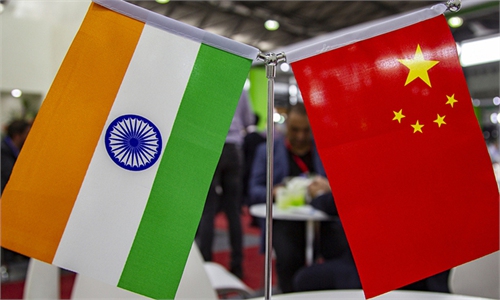Indian politicians should not turn ‘New Year sweets’ into bullets: Global Times editorial

China India File photo:CGTN
On the first day of 2022, the People's Liberation Army of China and the Indian Army exchanged greetings and sweets at 10 locations along the Line of Actual Control. The two sides sent each other best wishes after the China-India border standoff started almost 20 months ago. Many media see this as a signal that China-India relations are becoming stable. Moreover, this event has created a better atmosphere for the upcoming next round of the China-India Corps Commander Level Meeting, as well as the further recovery and development of China-India relations.There has been a tradition of exchanging sweets on major festivals between Chinese and Indian soldiers on the border. It has paused in the last two years after the border conflict occurred. Messages about the resumed tradition have received many likes on social media. A Chinese netizen said that it is better to send each other sweets than bullets. But unfortunately, the opposition in India has taken the chance to hype this event, accusing the Modi administration of "capitulating to China."
Even sweets can be made into a big issue. This is the epitome that China-India relations are becoming stable, but have been disturbed from time to time. Part of the reason is because there are some radical anti-China people who cannot desensitize China-India ties because of the 1962 border conflict, but it is caused more by the increasingly polarization trend in domestic India which "opposes for the sake of opposition." Though those voices, particularly the latter, haven't been able to sway the foreign policy of Modi administration, their hijacking effect is increasing. An atmosphere seems to be forming in Indian society that praises China and cooperating with China is politically incorrect.
If India's domestic politics has become "Americanized" as it is increasingly divided, allowing some radical politicians to throw mud at China-India relations unscrupulously for their own political ends, and even form a public opinion orientation centered on anti-China, this will not help India realize its ambition of becoming a major power. In 2019, Modi has set a grand target of making India a $5 trillion economy by 2025 and the third largest economy in the world by 2030. He has said on many occasions that "the 21st century is India's century." All these show that the first priority of India now is development, not engaging in a war.
For an ambitious India which is in urgent need of development, external stability, especially stable major power relations, is an important guarantee for its domestic development. Decision-makers in India should keep broad strategic sobriety, and handle China affairs with a broader mindset of a big country. At the same time, it needs to cope with domestic populist voices carefully, preventing them from kidnapping policies. In some sense, the rationality of New Delhi's decision-making depends, to a large extent, on calmly managing domestic radical public opinion.
It is noticeable that Indian media outlets are keen on quoting views from the US or West that attack or smear China, which to some extent consolidates the negative perception toward China among Indian elites. In recent years, the US and the West have spent more efforts to rope in India, expanding the concept of "Asia Pacific" to "Indo-Pacific" and including India to the Quadrilateral Security Dialogue. But Indian elites should understand that the true intention of the US and the West is to benefit themselves by inciting an China-India feud.
There is a saying in Indian society that China isn't willing to see India's development. Such a view cannot hold water. In fact, China has always emphasized the significance of "Dragon and Elephant dancing together" when it comes to developing relations with India. In 1988, when former Chinese leader Deng Xiaoping met with then Indian prime minister Rajiv Gandhi, he pointed out that unless those two countries [China and India] are developed, there will be no Asian century. No genuine Asia-Pacific century or Asian century can come until China, India and other neighboring countries are developed." When Chinese President Xi Jinping had a meeting with Indian Prime Minister Narendra Modi in 2019, Xi stressed that "China hopes to develop well, and has the same hope for India. The two countries should help each other accomplish their respective goals and 'light up' each other."
The fact is, without political disruption, China and India can achieve mutual benefits and win-win results. China-India trade volume has witnessed an upturn in 2021, and historically crossed the record of US$ 100 billion in the first 10 months of the year, surging 47.8 percent year-on-year. This indicates that carrying out economic and trade cooperation is in line with the actual demands of the two countries.
But since 2020, from India's announcement to ban Chinese apps to recent sudden "investigations" into multiple Chinese companies, India's real "market demands" have been always suppressed by its domestic "political demands."
Many Indians recently have a mixed feeling about another big event. The Regional Comprehensive Economic Partnership (RCEP) - the world's largest free trade pact - entered into force on the first day of 2022. India decided to withdraw from the RCEP in November 2019 at the final stage of the negotiations. This is India's own choice, and we have no ground to criticize it much. But we would like to say that in face of the pandemic and downward global economy, the spirit of cooperation is particularly valuable and action of cooperation is particularly important.
Back to the exchange of sweets between Indian and Chinese soldiers. The Indian politicians really shouldn't keep lowering their horizon and vision for private political gains, even turning "New Year sweets" into bullets. This will do India more harm than good.

